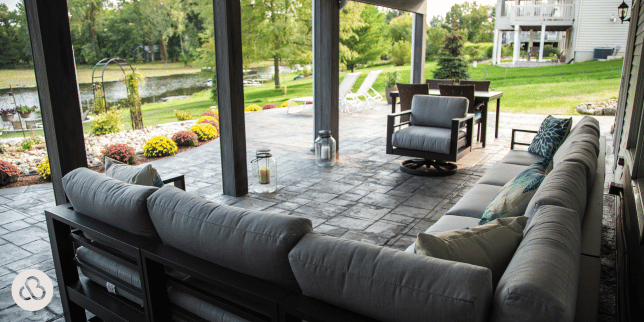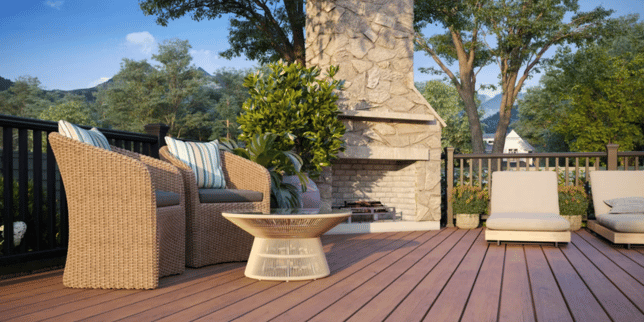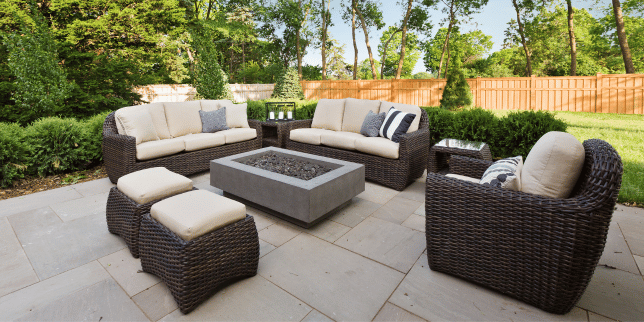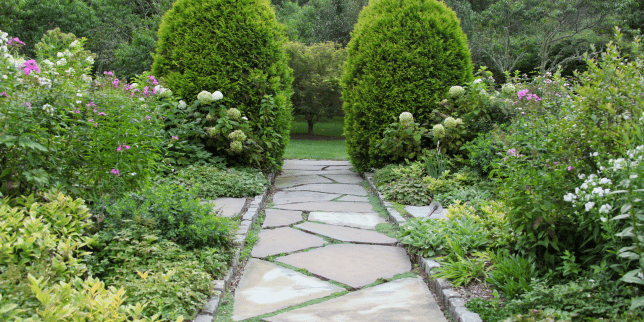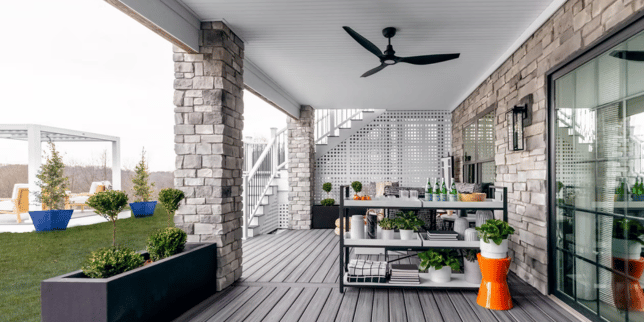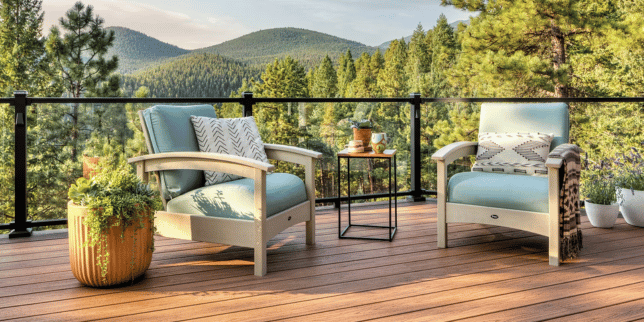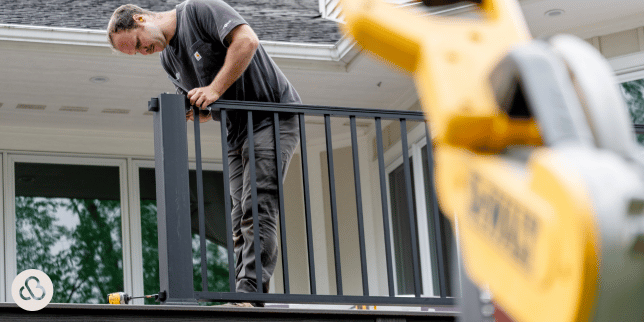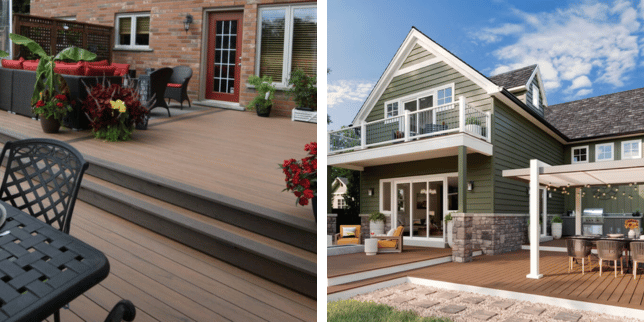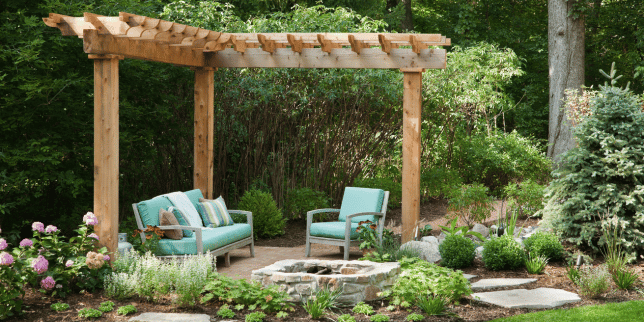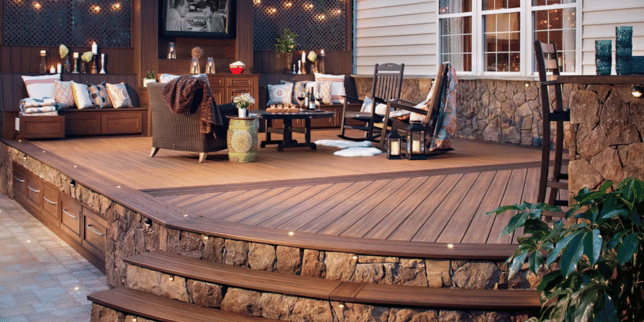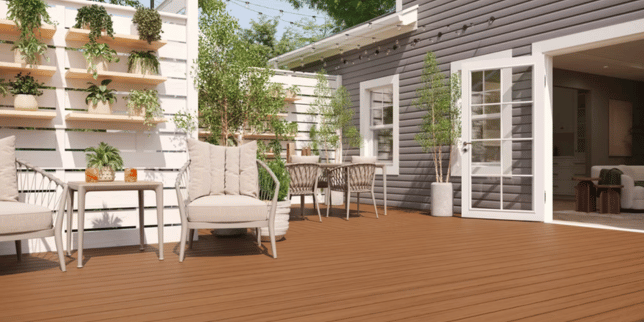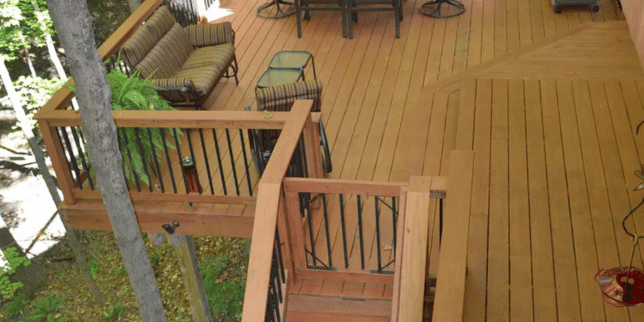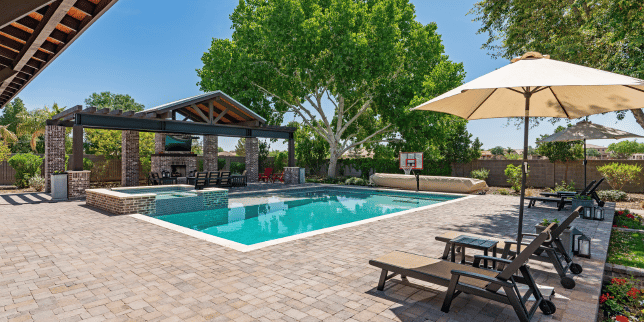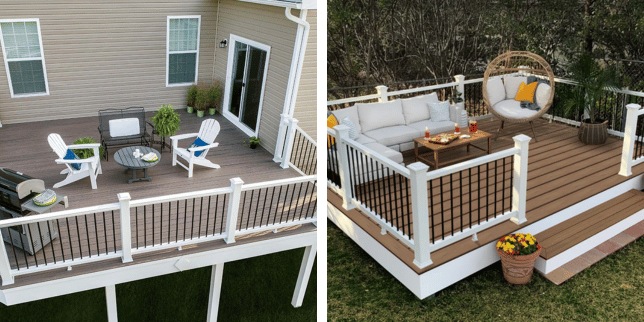The Ultimate Guide to Low Maintenance Deck and Patio Products
July 31st, 2023
4 min read
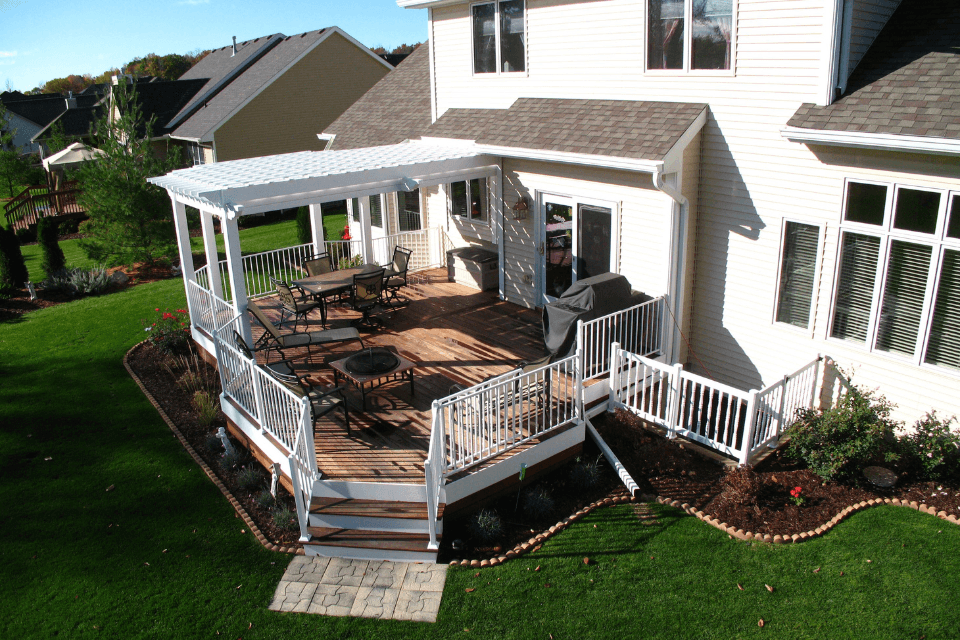
Tired of scrubbing algae off deck boards? Are you looking for a low-maintenance option that offers durability and convenience?
If so, you're not alone. Many homeowners seek low-maintenance deck/patio products to free up their time and enjoy their outdoor space without constant upkeep.
At Custom Built, we understand the frustration of constantly staining, sealing and repairing your deck or patio. That's why we're here to help.
With our 15+ years of expertise in outdoor living space remodeling, we've researched and compared various low-maintenance products to provide you with the information you need to make an informed decision.
In this article, we will explore and compare different low-maintenance deck and patio options, including:
- Composite decking
- Vinyl decking
- Brushed concrete
- Stamped/stained concrete
- Concrete pavers
Pros & Cons of Composite Decking
Composite decking offers a low-maintenance solution for homeowners seeking a durable and long-lasting outdoor flooring option. Its composition of wood fibers and recycled plastic gives it the appearance of natural wood without the need for regular staining, sealing, or painting. Composite decking is resistant to rot, mold, and insect damage, eliminating the need for constant repairs or replacements.
It is also designed to withstand harsh weather conditions, including fading and discoloration caused by sunlight exposure. With simple cleaning and occasional inspections, composite decking can retain its beauty and functionality for years with minimal effort, making it an attractive choice for those looking for a low-maintenance deck solution.
Here are the main pros and cons you can expect from composite decking:
Pros of Composite Decking
- Composite decking offers excellent durability and is resistant to rot, mold, and insect damage.
- It requires minimal maintenance, such as occasional cleaning, and does not require staining or sealing.
Cons of Composite Decking
- It may be prone to scratching and fading over time, especially in high-traffic areas.
- Composite decking tends to be more expensive upfront compared to other options.
Pros & Cons of Vinyl Decking
Vinyl, also known as polyvinyl chloride (PVC), is a synthetic material that is commonly used in various applications, including decking. It is composed of a combination of ethylene and chlorine, which undergo a chemical process known as polymerization to create a durable and versatile material. Unlike wood decking, vinyl does not require regular staining, sealing, or painting to maintain its appearance.
With occasional cleaning using mild soap and water, vinyl decking can retain its vibrant color and smooth surface for years, allowing homeowners to spend more time enjoying their deck and less time on maintenance tasks.
Let’s explore the top pros and cons to consider when choosing vinyl decking:
Pros of Vinyl Decking
- Vinyl decking is highly resistant to moisture, stains, and fading.
- It requires minimal maintenance, making it an excellent choice for those seeking a hassle-free deck.
Cons of Vinyl Decking
- Vinyl decking may have a limited color selection compared to other materials.
- It can be susceptible to scratching and may require occasional cleaning to maintain its appearance.
Pros & Cons of Brushed Concrete
Brushed concrete is a type of finish applied to concrete surfaces, creating a slip-resistant surface. It is achieved by using a specialized broom or brush to create shallow grooves and ridges on the concrete's surface.
Additionally, the simple design and lack of intricate patterns or grooves make brushed concrete easier to clean and maintain, requiring only regular sweeping and occasional pressure washing to keep it looking fresh and inviting.
Let’s take a look at the biggest pros and cons of brushed concrete:
Pros of Brushed Concrete
- It is highly durable and can withstand heavy foot traffic.
- Brushed concrete provides a sleek and modern look to the deck.
Cons of Brushed Concrete
- It can become slippery when wet, posing a safety risk.
- While it creates a sleek look to your patio, brushed concrete isn’t as aesthetically pleasing compared to stamped concrete.
Pros & Cons of Stamped Concrete
Stamped concrete is a low-maintenance choice for outdoor living spaces, offering both durability and aesthetic appeal. The patterned texture created during the stamping process not only enhances the visual appeal of the concrete but also helps to mask any signs of wear or minor damage that may occur over time.
Additionally, stamped concrete is sealed to protect it from stains, spills, and UV damage, making it easier to clean and maintain.
With regular sweeping and pressure washing every 6 months, stamped concrete can retain its beauty and functionality for years to come, requiring minimal effort on the part of homeowners.
Here are the main pros and cons to keep in mind when installing stamped concrete:
Pros of Stamped Concrete
- It is durable and long-lasting, with minimal maintenance requirements.
- Stamped concrete offers a wide variety of design options, mimicking the look of natural materials like stone or wood.
Cons of Stamped Concrete
- Stamped concrete can be more expensive to install compared to other options.
- The pattern and color of stamped concrete may fade over time, requiring occasional touch-ups.
Pros & Cons of Concrete Pavers
Concrete pavers offer a low-maintenance solution for outdoor flooring that combines durability with aesthetic versatility. Their interlocking design creates a stable surface that requires minimal upkeep. Concrete pavers are resistant to cracking, fading, and weather damage, ensuring long-lasting performance.
Additionally, their individual units make repairs and replacements easy if any pavers become damaged over time. With regular cleaning and occasional resealing, concrete pavers can maintain their appearance and functionality with little effort, making them a practical choice for homeowners seeking a low-maintenance option for their outdoor spaces.
Let’s discover the key pros and cons of concrete pavers:
Pros of Concrete Pavers
- They are highly durable and can withstand heavy loads.
- Concrete pavers provide a versatile and customizable deck surface.
Cons of Concrete Pavers
- Individual pavers can shift or settle over time, requiring occasional leveling.
- Concrete pavers may require regular cleaning and weed control to maintain their appearance.
Next steps to building your low-maintenance outdoor living space
Choosing the right low-maintenance deck or patio product is crucial to enjoying your outdoor space without constant upkeep.
By exploring the different options and understanding their features and benefits, you can make an informed decision that aligns with your lifestyle and design preferences.
At Custom Built, we are committed to helping homeowners find the perfect outdoor living space solution. With our 15+ years of expertise and extensive knowledge of low-maintenance deck and patio products, we can guide you through the selection process and ensure a successful outdoor remodeling project.
In this article, we have compared various low-maintenance deck and patio products, including:
- Composite decking
- Vinyl decking
- Brushed concrete
- Stamped/stained concrete
- Concrete pavers
For more information on how to approach the design portion of your remodel, we recommend the following articles:
Michael brings over 2 decades of building and remodeling experience to his position as the Owner and Visionary of Custom Built. Michael’s passion to make an impact on the home building industry has led him to serve for over ten years at the local and state Home Builders Association, culminating as President of the HBA of Michigan in 2020.













